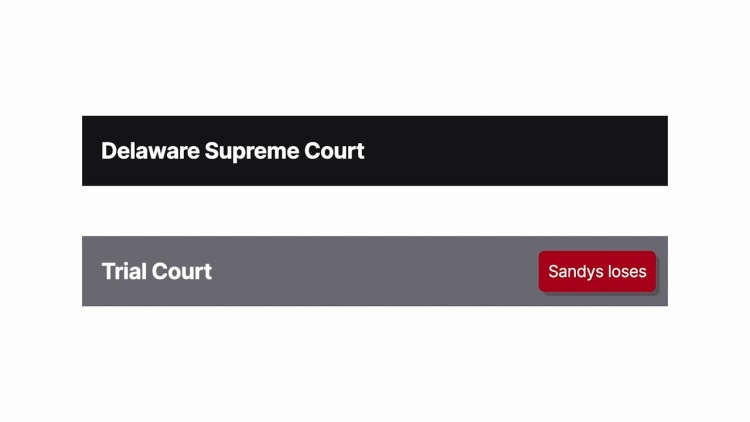Sandys v. Pincus
Delaware Supreme Court
152 A.3d 124 (2016)
- Written by Rose VanHofwegen, JD
Facts
Shareholder Thomas Sandys (plaintiff) brought a derivative action on behalf of Zynga, Inc., accusing its CEO and controlling stockholder Marcus Pincus and other directors (defendants) of insider trading. The directors moved to dismiss for failure to make a pre-suit demand. In determining whether a majority of the nine-member board was independent, the court found directors Pincus and Reid Hoffman financially interested but found five others independent and dismissed the suit. Sandys appealed, arguing that the majority had interests that made a fair response to a pre-suit demand unlikely and excused the demand requirement. Specifically, Sandys claimed that director Ellen Siminoff and Pincus were close family friends with an existing business relationship, because they co-owned a private airplane. Directors William Gordon and John Doerr were partners at a venture capital firm invested in a company founded by Pincus’s wife. Hoffman invested in yet another company with the venture capital firm and served on its board. Sandys argued that the directors would not risk that network of relationships by causing Zynga to sue them. Moreover, Zynga’s board itself determined that it did not qualify as sufficiently independent to list on NASDAQ. Last, director Don Mattrick becoming Zynga’s CEO by the time suit was filed made him interested as well.
Rule of Law
Issue
Holding and Reasoning (Strine, C.J.)
What to do next…
Here's why 907,000 law students have relied on our case briefs:
- Written by law professors and practitioners, not other law students. 47,100 briefs, keyed to 996 casebooks. Top-notch customer support.
- The right amount of information, includes the facts, issues, rule of law, holding and reasoning, and any concurrences and dissents.
- Access in your classes, works on your mobile and tablet. Massive library of related video lessons and high quality multiple-choice questions.
- Easy to use, uniform format for every case brief. Written in plain English, not in legalese. Our briefs summarize and simplify; they don’t just repeat the court’s language.





